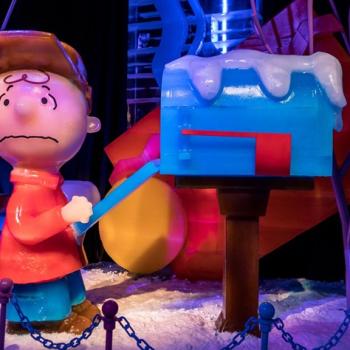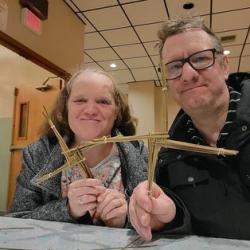 Anyone who spends any time at all reading about Heathenry or interacting on mailing lists, or working within a kindred will at some point become acquainted with a set of moral precepts called "The Nine Noble Virtues." While having no exact basis in the surviving lore, the Nine Noble Virtues, or NNV are ostensibly drawn from the Havamal and other Eddic poems as representative of the character to which a good Heathen should aspire. I have heard it said, with no small degree of either sarcasm or accuracy, that they could just as easily be called the "Nine Protestant Virtues" but that is an article for another day.
Anyone who spends any time at all reading about Heathenry or interacting on mailing lists, or working within a kindred will at some point become acquainted with a set of moral precepts called "The Nine Noble Virtues." While having no exact basis in the surviving lore, the Nine Noble Virtues, or NNV are ostensibly drawn from the Havamal and other Eddic poems as representative of the character to which a good Heathen should aspire. I have heard it said, with no small degree of either sarcasm or accuracy, that they could just as easily be called the "Nine Protestant Virtues" but that is an article for another day.
The NNV, as codified by the Odinic Rite in the 1970s are:
Courage
Discipline
Honor
Truth
Industriousness
Perseverance
Fidelity
Self-reliance
Hospitality
There is nothing wrong with this list in and of itself; in fact, I think these are very worthy goals to which to aspire. I just don't think it goes far enough. I'd like to see us develop a deeper set of moral guidelines, in tandem with these original nine. The list above is just fine as a place to begin, and certainly there is an element of interior practice in the careful cultivation of these virtues. Still, I think that there are several, to my mind, fundamental ‘virtues' lacking from this list and without them, the list above has the potential to lead to arrogance instead of respect for the Holy Powers.
Every religion has two faces: a social face and an interior face. A large part of any religion involves structuring accepted worship practices—i.e., the way people navigate their interactions with the Holy Powers—according to common community consensus. Quite often, that also involves maintaining the status quo and rocking the boat as little as possible. Therefore, there's a limit to how far such practices can take one. On the positive side, it is this conservatism that aids and ensures the development and transmission of tradition. It provides safety, security, and stability—not insignificant gifts.
Likewise, in every religion there are those elements of practice that are not part of the overall religious consensus. There are those mystics, prophets, and firebrands whose focus is on the Holy Powers alone and whose devotional life ignites a fire that has the potential to radically change the accepted and comfortable religious status quo. Here a community can gain inspiration and a reigniting of spiritual ardor, a greater understanding and awareness of the Holy Powers, and a return to the raw momentum of spiritual integrity. It is the gifts of these people that allow a religion to grow, evolve, and expand. These too are significant gifts.
Much of the evolution of religious history tells the story of the tension between these two diametrically opposed sides of the devotional equation and the ways in which religious groups chose to navigate that tension. Though young (perhaps because it is so young), contemporary Heathenry has traditionally and vociferously demonstrated a preference for tradition over inspiration. (Some would even argue that tradition is their inspiration.) Ironically, in many respects, this mirrors the dynamic tension of the Northern Tradition creation story, in which all life springs from a collision and synergetic tension between two opposing forces, in the case of creation, the world of Fire and the world of Ice; i.e., forward moving force versus careful inertia. We are our stories reborn after all.
In the best circumstances, religious traditions evolve out of that constant, ongoing process of negotiation, because the gifts of both sides of that equation are needed for a religion to be healthy, humane, and whole. Of course, saying that is one thing and actually doing it for any extended period of time quite another. I think that perhaps our ancestors, coming from a predominantly oral culture, one that had evolved organically over generations, managed it better than we. They had the benefit of having a religion that was a family tradition. We, charged as we are with restoring and reconstructing are fighting a battle quite alien to their religious life. They had generations of religious structure and an inborn sense of cohesion that is better able to allow for ecstatic devotion, growth, and change. We of necessity fear it, because our structure is still in flux, still in the process of being consciously, maybe a little too self-consciously, restored. We don't have the same level of stability that was quite naturally part of our ancestors' religious world. Added to that the fact that we're a generation of converts (to a minority religion no less) and that leaves us with a certain reactionary sensibility that I believe would have been quite alien to our pre-Christian Heathen forebears. But again I digress.





